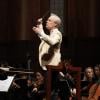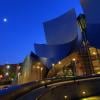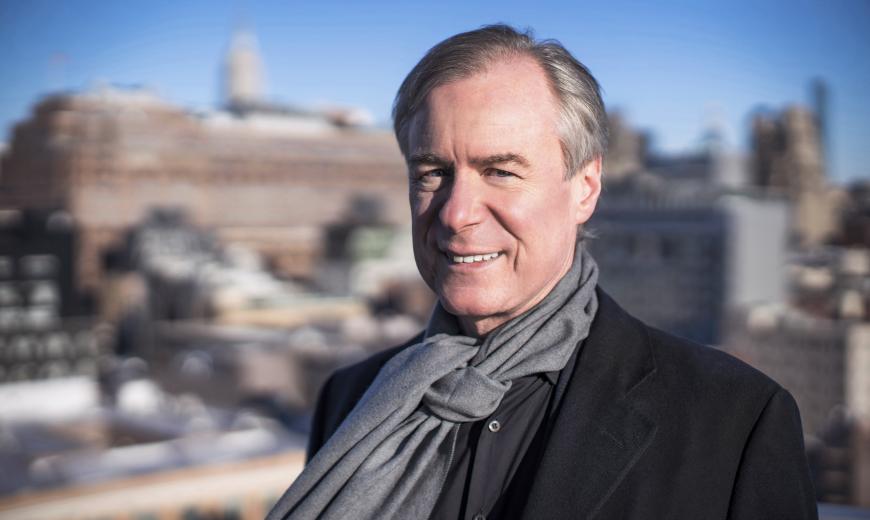
There are countless analogies for the job of a conductor, but David Robertson chose a particularly vivid one during a relaxed interview on a recent afternoon in Santa Barbara. Perhaps the veteran maestro was inspired by the surroundings, sitting outdoors on the lush green grounds of the Music Academy of the West.
“As a composer, when you have a fabulous musical idea, getting it down on the page feels very much like a butterfly lover who catches this miraculous, beautiful thing in your net,” Robertson said. “You then stick a pin through it. It’s still beautiful, but it’s not flying anymore.
“I think my job as an interpreter is to take all the incredible butterflies that are stuck on the page and allow them to start flying around.”
That image, evoking delicacy and freedom, is quintessential Robertson — a soft-spoken, amiable man who is the opposite of a hotheaded podium tyrant. Now 66, the former music director of the St. Louis Symphony keeps busy guest conducting many of the world’s great orchestras, including those of Philadelphia and Cleveland this fall.
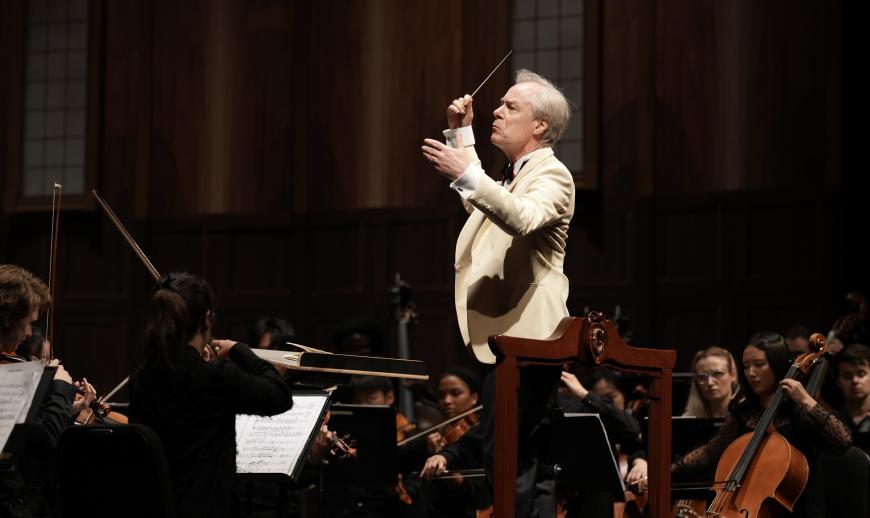
He recently conducted the Los Angeles Philharmonic at the Hollywood Bowl — his first appearance with the orchestra since the spring of 2022, when he replaced an injured Semyon Bychkov in Gustav Mahler’s Seventh Symphony at the last minute. (Robertson hit it out of the park.) In April, a short composition he wrote was premiered by the LA Phil New Music Group; SF Classical Voice critic Richard S. Ginell called it “movingly melancholy.”
Robertson lives in New York City with his wife, pianist Orli Shaham. Our conversation has been slightly edited for clarity and concision.
You’re conducting a new John Adams work with the San Francisco Symphony in January. Have you seen the score yet?
No. John and I have been corresponding back and forth. He keeps telling me, “You’ll see it next week.” He’s got a lot on his plate. He’s currently trimming [his opera] Antony and Cleopatra, which is a very hard thing to do. Which one of your limbs do you want your children to do without?
When you give a world premiere, does the composer generally keep a close eye on what you’re doing? Or does he or she more often say, “You take it from here”?
It varies depending on [the composer’s] personality. When [conductors] get a score, we’re trying to figure out the meaning the composer put into that score — why that combination of pitches meant so much to the composer who put it in there in that way. It’s a little bit reverse engineering what you see and asking why. So I’m happy to have the composer there. There are times I wish Schubert was there so I could ask him about some passages!
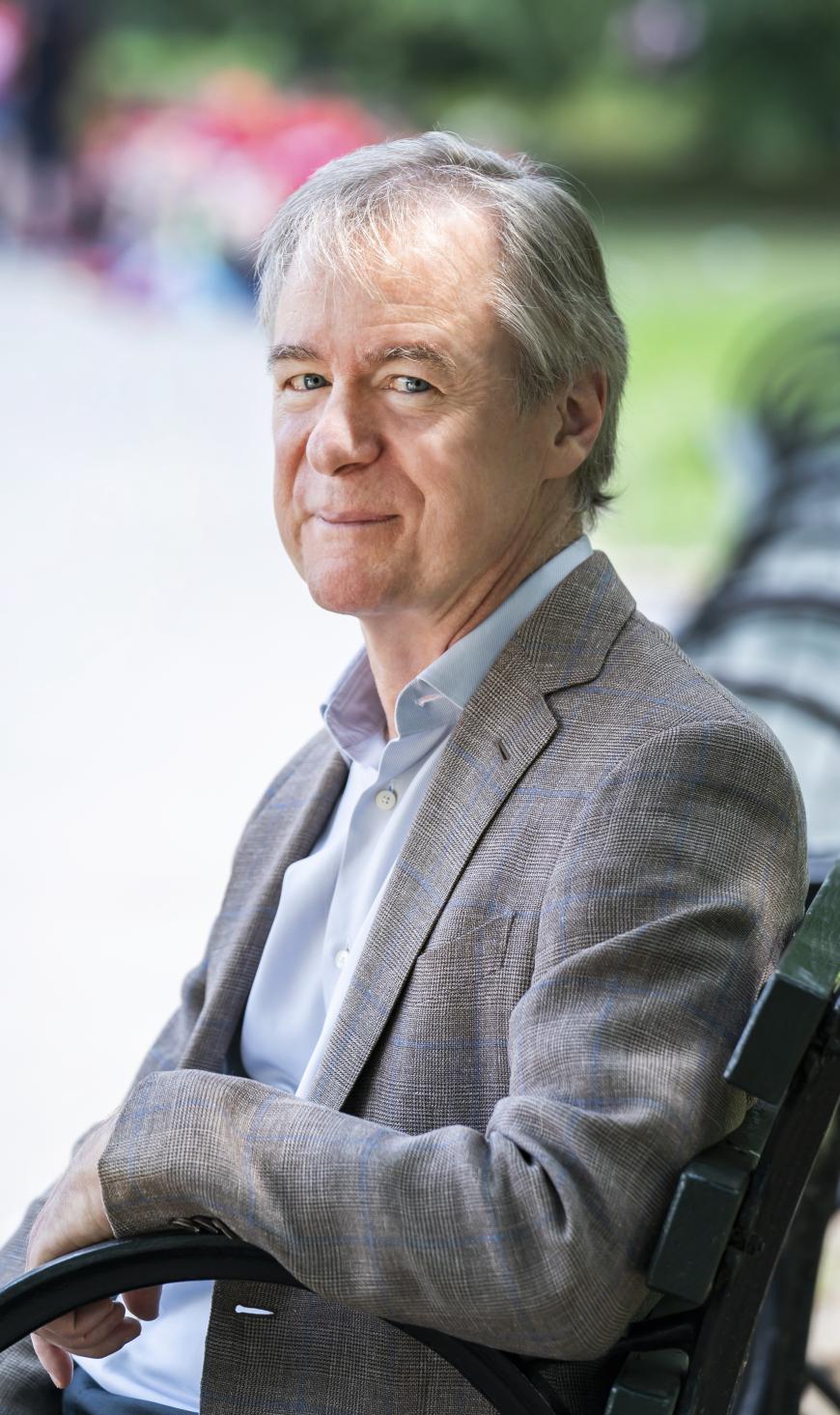
To some extent, I look at my job almost like an editor at a literary magazine. Some amazing writer like George Saunders brings you a new piece. After reading it carefully and coming to an understanding of what the writer is doing, you can pose questions about the text. Your goal is to help authors bring out what they have in mind with the greatest clarity.
As you know, there are music director openings in Los Angeles and San Francisco. Would you be interested in one of those positions? Or are you done with all that?
If somebody comes up to me and says, “Would you like to do this?” and it seems like it would benefit both parties, then sure. I’ve known both of those [cities’ orchestras] for a long time, but I don’t know what they want today.
The weird thing is I never worked to get a position. The Lyon National Orchestra, the BBC [Symphony Orchestra], St. Louis, [the] Sydney [Symphony Orchestra] — [those jobs] all came out of the blue, with people asking me if I’d be interested. So I’ve never thought in terms of career advancement.
The SF Symphony in particular is dealing with some pretty tough financial issues. Any thoughts on how orchestras can get through this rough period?
With the pandemic, we essentially said to people, “It’s OK not to come. Here it is on your screen. You don’t need to leave your house.” That breaking of the habit is hard to bring back. That and other problems orchestras are facing are universal, but I feel the solutions to those problems are site-specific. The answer in San Francisco might be different from that in Kansas City.
Each place I’ve been music director, it has taken me a season and a half to understand the local audience. I don’t just mean what they like and don’t like. I found people in St. Louis, Sydney, and London have completely different senses of humor. Talking to people in Germany about the music you’re going to play is very different than [talking to the audience] in South Korea.
What about the players themselves? Does each orchestra have a distinct personality?
Absolutely. You learn this fairly quickly. There are ways you rehearse a piece with one orchestra that you would never entertain with another. There are certain orchestras that want you to be a technical consultant: “Do that this way. Do this that way.” They love that. But I prefer to look at it as a conversation.
Do you go into a rehearsal with strong ideas about a piece, or is creating the interpretation more an organic process that grows out of rehearsal?
It’s both. The first time I play through something, I listen for the potential of this particular group of artists on this particular piece. I might have somebody in the brass or woodwinds who has a particular kind of sound. That might lead me to say, “In that case, let’s do this.” The tone a particular cellist has on a note may make you slightly alter things. Essentially, you try to set the stage for things to happen.
The New York Times review of a recent concert you conducted with the New York Philharmonic reported the musicians were smiling and happy. That’s impressive given their reputation for being a bit prickly.
It may be my personality — middle child — but I rarely feel an orchestra is giving me animosity. If that’s the case, the orchestra is looking for something I’m not providing, so it’s better they work with someone else.
Speaking of being a middle child, let’s talk a bit about your early years. You grew up in Santa Monica and Malibu. Did being a native Californian shape who you are?
Yes. The large melting pot that is Los Angeles, with people from many different cultures, was important. My family was not musical per se, but everybody loved music. My mother would sing songs in the kitchen as she worked — everything from Broadway standards to ’50s and ’60s tunes. I listened to the swing jazz and Dixieland jazz that my father liked. This was combined with all the classical music I was discovering. It was all just wonderful music.
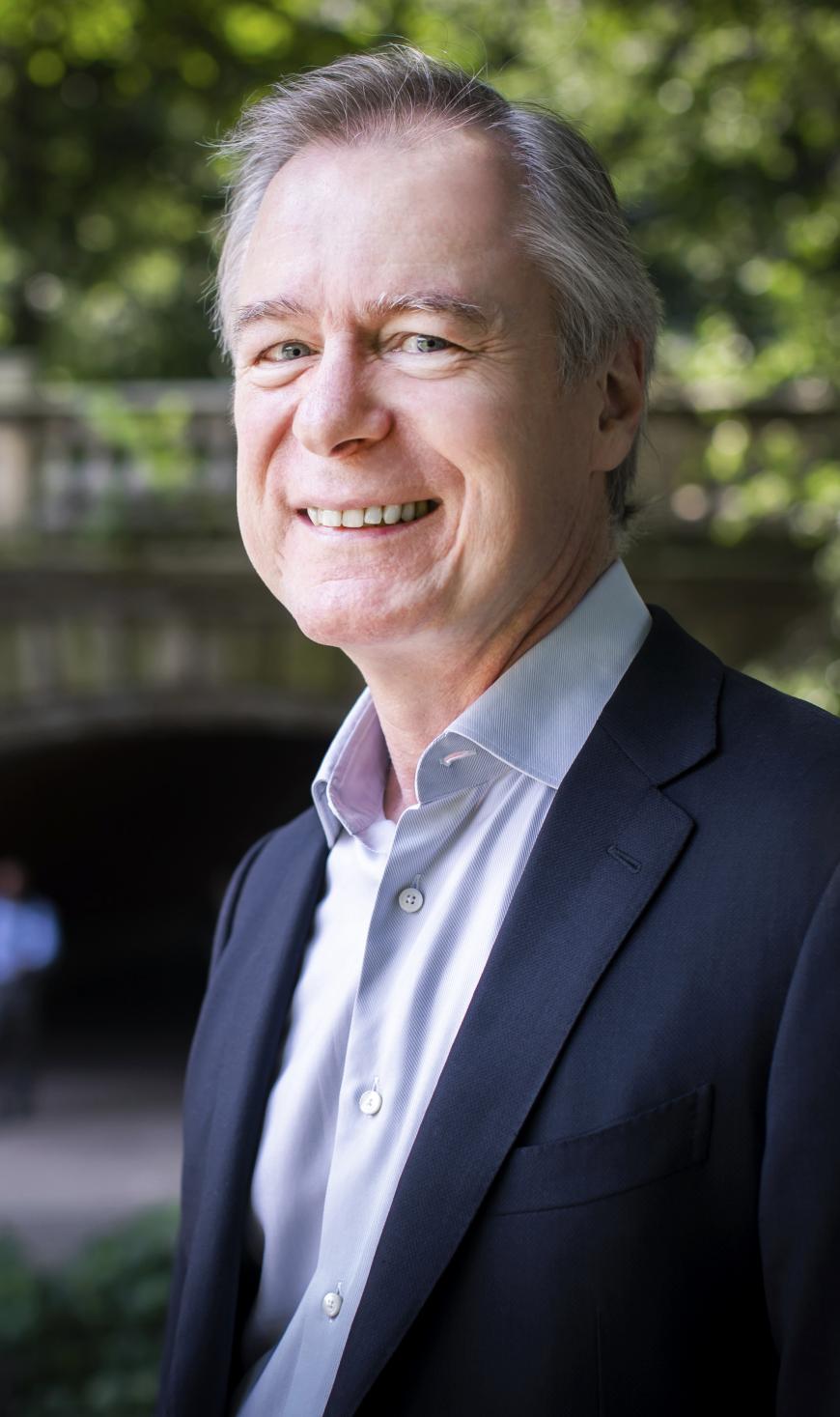
I went to Santa Monica High School, which had such a large student body [that] it was like a small community college. The music department, which I was involved with, was stellar, and the theater and dance program was also very strong. I was involved in all those things. I wrote music for plays and also acted in them. I had to choose between going into acting or music.
At what age did you begin conducting?
In junior high school, the music teacher was having health problems and was frequently absent. One day, a substitute teacher asked, “Does anybody want to conduct?” My hand shot up, and I led the rehearsal. At the end of the day, she went to the board of education and told them about me. When the regular music teacher came back, he had me do more, and whenever there was a substitute, I was on the podium. The following year, the new music teacher had heard about me, and he let me conduct my first concert with the school orchestra at age 13.
At 16, I became assistant conductor of the Santa Monica Youth Symphony. So I had a lot of opportunities to conduct. It felt like a natural thing. I always enjoyed working with a lot of musicians. People sometimes tell me I’m nonconfrontational on the podium. I reply that’s because I started conducing before puberty.
To back up a bit, how did you get into music as a child?
You could start playing an instrument in fourth grade, and my middle-class, middlebrow parents suggested I should have a basic grounding in the piano. My older sister was very good at the piano, but it didn’t fit with the way I experienced music. They had to practically chain me to the piano to get me to practice.
Herb Alpert was my go-to guy, so in fourth grade, I chose the trumpet. To my parents’ surprise, I was practicing for an hour or two a day — without them having to ask. I got pretty good by the end of the school year. We went on vacation that summer, and while we were away, the house was burglarized. They took all of my mother’s jewelry, my dad’s stamp collection — and my trumpet. That almost killed instrumental music for me. Thanks to insurance, we got a new one, but it wasn’t the same. I wonder if [I gravitated toward conducting because I thought] “If I’m conducting, nobody can steal my instrument.”


